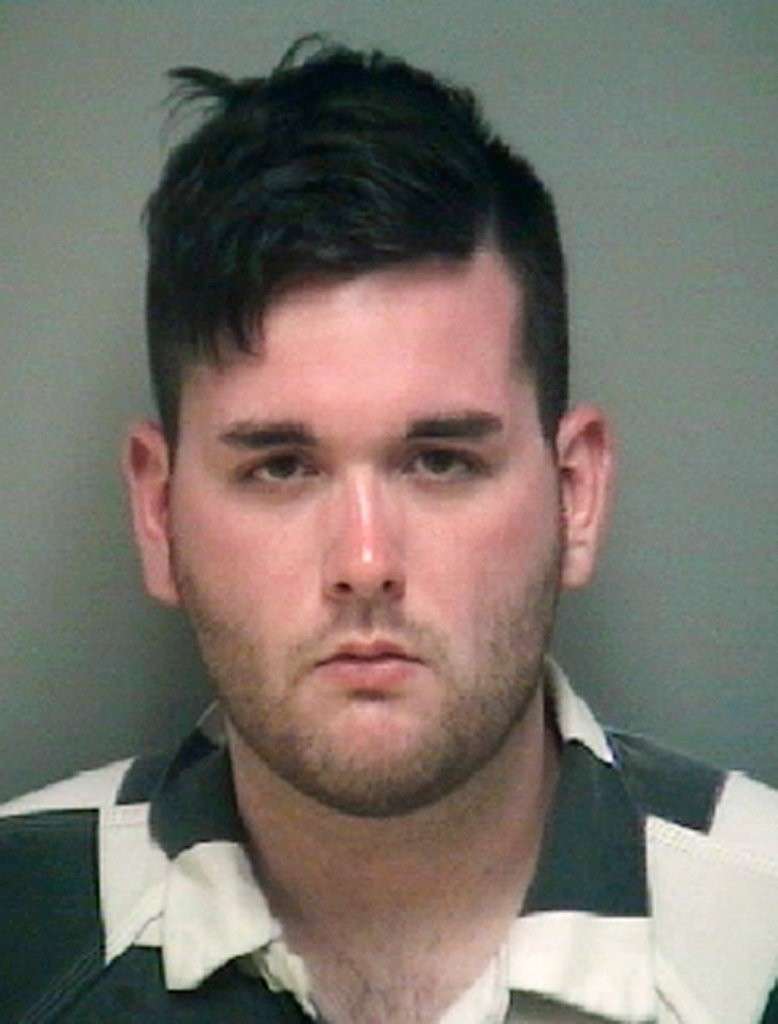James Fields Killed Heather Heyer Because of Her Opinions, and Now the Government Is Trying to Do the Same to Him
The federal case against the Charlottesville murderer illustrates how hate crime laws punish people for their bigoted beliefs.

Yesterday a Virginia jury recommended that James Fields Jr., the white supremacist who drove his car into a crowd of counterprotesters at the Unite the Right rally in Charlottesville last year, spend the rest of his life in prison. In addition to a life sentence for the first-degree murder of Heather Heyer, the 32-year-old woman who died after Fields hit her with his Dodge Challenger, the jury recommended a total of 419 years for various other charges related to the incident, including aggravated malicious wounding for the injuries he inflicted on other people in the crowd. Charlottesville Circuit Court Judge Richard E. Moore, who is scheduled to sentence Fields in March, can impose a lighter penalty, but it seems clear that Fields, who was convicted last week, will die behind bars.
Those who view that punishment as inadequate can still look forward to the federal prosecution of Fields for the same crimes, which could result in his execution. The legal theory underlying that case illustrates the puzzling logic of federal hate crime laws, which provide an excuse for double jeopardy and effectively punish people for their detestable views.
According to the June 27 federal indictment against Fields, he committed a "hate crime resulting in death" when he "willfully caused bodily injury to Heather Heyer, because of the actual and perceived race, color, religion, and national origin of individuals in a crowd gathered at and near the intersection of Fourth and Water Streets in Charlottesville, Virginia." That circumlocution aims to avoid an obvious problem with describing Heyer's murder as a hate crime under 18 USC 249(a)(1): Fields hates Jews and blacks, but Heyer, a white working-class Southerner, was neither. Fields did not select her as a victim "because of" her actual or perceived race, color, religion, or national origin.
No problem, federal prosecutors decided: We will say that Fields drove into the crowd because it was "racially and ethnically diverse." Hence Heyer died as a result of a hate crime. The U.S. Attorney's Office for the Western District of Virginia also got the grand jury to approve a charge under 18 USC 245(b)(2)(B), which covers deadly bias-motivated crimes that interfere with a "federally protected activity"—in this case, using "the public streets and sidewalks of Charlottesville, Virginia." That provision brings the death penalty into play.
But there is still a problem, because it looks like Fields targeted the people he attacked not because some of them had dark skin (or looked Jewish) but because he vehemently disagreed with their political views, which is not a category covered by the laws that the Justice Department is invoking. "Many of the individuals in the crowd were chanting and carrying signs promoting equality and protesting against racial and other forms of discrimination," the indictment notes. The chanting and the signs identified the group as counterprotesters, as opposed to Fields' likeminded allies. Had the crowd been completely white, it seems likely that Fields still would have done what he did.
In other words, Fields killed Heyer because of her opinions, and now the federal government is trying to do the same to him. "Prior to August 12, 2017," the indictment says, "Defendant JAMES ALEX FIELDS JR. obtained multiple social media accounts, which he used to express his beliefs regarding race, national origin, religion and other topics. On these accounts, FIELDS expressed and promoted his belief that white people are superior to other races and peoples; expressed support of the social and racial policies of Adolf Hitler and Nazi-era Germany, including the Holocaust; and espoused violence against African Americans, Jewish people and members of other racial, ethnic and religious groups he perceived to be non-white. FIELDS also expressed these views directly in interactions with individuals known to him."
Fields' bigoted beliefs are legally relevant because they suggest that his violence was motivated by his animus toward "African Americans, Jewish people and members of other racial, ethnic and religious groups he perceived to be non-white," even though it is by no means clear that he chose his actual victims because of their membership in those groups. The upshot is that the government can kill him, which would not be legally possible if he had never expressed his hateful opinions. That is a pretty stark illustration of how hate crime laws punish people for what would otherwise be constitutionally protected speech.
Fields is a murderer and deserves to be treated as such. But even assuming that the death penalty is sometimes appropriate for murderers, people should not be executed because of their beliefs, no matter how abhorrent they are.


Show Comments (113)